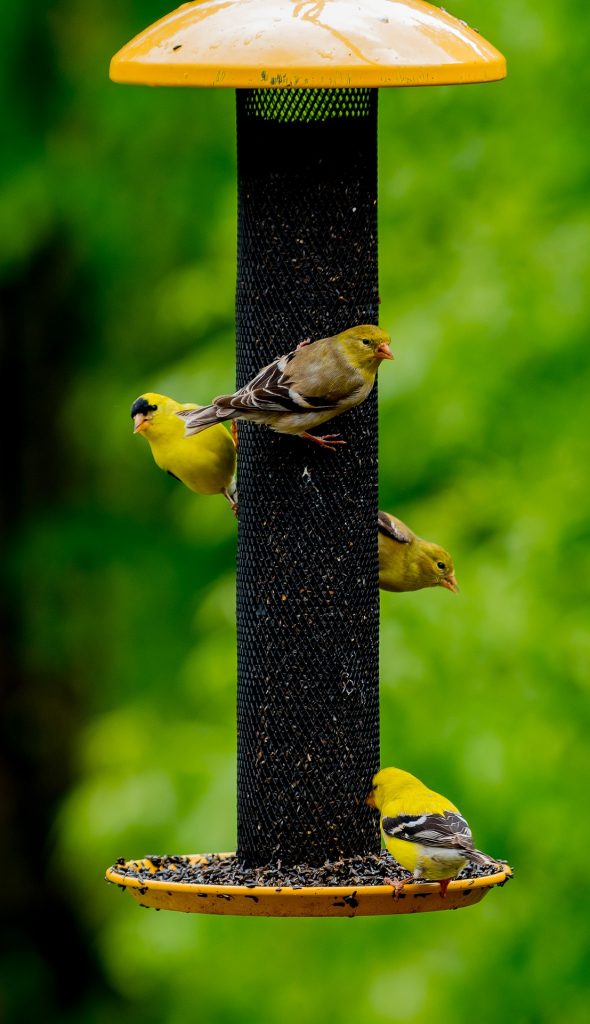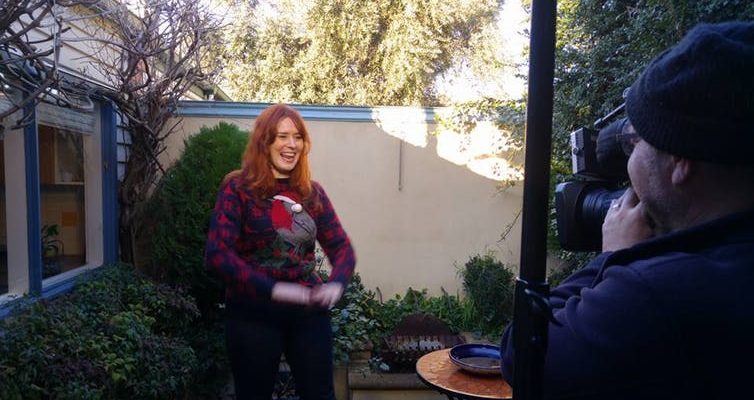I am an academic with dyslexia and I would like to share my story with you.
Dyslexia in academia is a conundrum – it is basically a learning difficulty, and coping with dyslexia is a very personal journey. It is different for everyone.
For me, dyslexia affects – among other skills – my maths, sciences and languages, including English. The very skills you need to succeed in the competitive world of academia. What is often so easy for others is difficult for me.
Academia is a place where you are expected to spit out research papers, the more cited and higher impact the better. While I do publish papers, I am not confident in my scientific writing. And I am so slow… my coauthors can get frustrated with my basic grammar errors, and don’t even get me started on statistics!
Still I persist. I go into university every day and work on those papers, determined to get them out. But more recently my career has taken a turn towards science communication – and it turns out that people think I’m quite good at it.
Education is hard
Sticking with the university environment may make me unusual among the dyslexic lot, as many don’t enjoy education.
I’ve always loved school for the learning, the knowledge. But I could not easily share my knowledge through written essays or sitting exams. I failed most subjects miserably at high school and was asked to leave. But this didn’t deter me – I stayed at school and worked my arse off. And still failed!
Growing up in Ireland, unfortunately I had to drop Irish – which is a required language for Irish universities even today. If I wanted to study I had to move to England.
So that is what I did. I followed my dream to an agriculture college, where I studied for a higher national diploma in wildlife management.
High hopes
 I, like so many, aspired to a career in academia. It is sold as the ultimate goal – the premier way to gain and share knowledge. I was addicted to learning, and inspired by the engaging and passionate academics who taught me.
I, like so many, aspired to a career in academia. It is sold as the ultimate goal – the premier way to gain and share knowledge. I was addicted to learning, and inspired by the engaging and passionate academics who taught me.
However, it has taken nearly 20 years for me to realise that passion alone won’t magically deliver the skills that are so vital to academia. Dyslexic academics need support for their invisible disability, the disability that I still feel so ashamed of.
What kept me going through the hard times? Well an inspirational song helps! Mine is Frank Sinatra’s High Hopes. Take the following verse:
Once there was a silly old ram
Thought he’d punch a hole in a dam
No one could make that ram scram
He kept buttin’ that dam!
Cause he had high hopes
He had high hopes
He’s got high apple pie in the sky hopes.
And us dyslexic lot don’t give up easily – we can be very determined and think outside the box. We can be written off as amounting to nothing – but it is hard to make us “scram” as we keep “buttin’ that dam”. We have tenacity and grit, and are inspired by others who went before us.
Adapt to survive
 Despite not getting a first class undergraduate degree, after a year of persistence I gained entry to a PhD program. I researched the diet of badgers and possible connections to cattle tuberculosis (a bacterial disease that can spread through cow herds).
Despite not getting a first class undergraduate degree, after a year of persistence I gained entry to a PhD program. I researched the diet of badgers and possible connections to cattle tuberculosis (a bacterial disease that can spread through cow herds).
My dyslexia shone as I wrote up my papers and thesis – for example, one of my early reports was on how badgers need a vacation (instead of vaccine) for tuberculosis!
So I had to adapt to survive. I turned to my peers to proofread my work for me. It is hard always needing help, and can really shake your confidence. It would be so much easier just to give up.
So why did I keep going? To make a difference in the world. To teach and inspire – I could do this by presenting my research to the public. I was told by my peers and supervisors that my presentation style was more like a cabaret show – but I always got my message across.
Where I am today
 Today I lead the Australian Bird Feeding and Watering Study. This work was initiated on behalf of the public who want to know how best to care for birds in back gardens.
Today I lead the Australian Bird Feeding and Watering Study. This work was initiated on behalf of the public who want to know how best to care for birds in back gardens.
People wanted to know how to provide food to birds safely and correctly, and we are using a citizen science approach to help them find the answers.
Part of the study includes sending frequent update emails on the research. This was a drama for me, as I was so nervous in case bad grammar and spelling slipped through. But I felt I had to be honest with the email recipients.
I explained “I am dyslexic” so they wouldn’t think I was being careless or lazy if mistakes did get through. The support they gave me was overwhelming. They didn’t care that I was dyslexic, and loved the way I wrote.
“My daughter is also dyslexic, and you are an inspiration to her,” one email read, while another told me: “Keep the faith – you are doing great.”
It is only now, after 20 years, that I am starting to find confidence. Finally I have found an aspect of academia that comes naturally to me: writing in a style that is easy to read and understand. For me, this is second-nature – it’s just how my brain works. Big words scare the holy hell out of me, partly because I often can’t pronounce them – let alone spell them.
So I write more simply than most – is this a bad thing? We are often told to write without passion, and I am still told by some colleagues and collaborators that my writing style will hold me back. I’m told it makes my research too colloquial. Ironic isn’t it – it’s actually what we call science communication.
For now I am going to keep on pushing, helping to break down the walls of academic writing. Maybe they need people like me? And always remember … never underestimate a person with dyslexia – we have grit!
Source: The Conversation – Grainne Cleary
Grainne Cleary is a Researcher,School of Life and Environmental Sciences, Deakin University



















I am also dyslexic, I didn’t know I was dyslexic, went through life without knowing, until first year of university, that was in 2014. I was a mature student, started university at the age of 46, who graduated in 2017 as a social worker.
I can totally relate to to this article, I found university was a great help and I was full supported.
However in my job, it is a great struggle, the sad thing is, I don’t get any support with proof reading. I am told I am too slow, filling in paper work, and grammar and spellings are wrong, which is quite frustrating.
You would think in a social work setting, where you are “supposed” to be helping people who struggle to get through life, that you would have more support? But perhaps, because social workers are overworked, underpaid, and deal with so much stress in everyone else’s lives, that they are too tired to help a coworker who “should be better than this”?
Grainne – you are absolutely needed !
The perfect person to break down these ridiculous barriers where the bigger the words and more complex the sentence structure is, the more superior it is considered – it is not !
What is the point of writing information and educating people if the majority do not understand what the writer is saying. Let’s face it – for many of us without dyslexia those academic articles are dry, boring and hard to follow !
Keep up the great inspirational work and advocacy for those people with a dyslexic learning profile.
Many Thanks
– deb
I love you article. I too am dyslexic. I struggled and still struggle like you. I was diagnosed when I was in 5th grade. Today I am a principal and have my Ed.D. The daily struggle is real, but the pay off is awesome.
I’m Irish too. I believe if you get a report of dyslexia from an educational psychologist that you are dyslexic you do not have to have Irish language to go to university in Ireland- this is a common issue discussed amongst Irish parents (am I not right?). I have two masters degrees in Ireland and I never had a problem with my Irish language needed. I know that my dyslexiaic nephews bypassed that rule and got into university without Irish.
Otherwise, I loved your story and I identify with a lot of what you said. I did my Masters of Research in Linguistics on perceptions of academic writing by successful dyslexic writers in the UK recently.
Read about my research
https://www.dyslexiastudyskills.com
Contrary to popular belief, many dyslexic writers go on to becoming academics- but ya, it is getting harder in the current climate of “present or die”. When I tried to publish a paper they said they loved the ideas but there were “too many ambiguities in my writing” (I don’t have grammar or spelling problems now after ten years of university). I asked them to just point those out and I would fix them- no chance. I said “but I’m dyslexic, shouldn’t you be not throwing me out- or your computer not throwing me out- at the first sign of trouble with my presentation?” They said everyone has to pay for an editor, even dyslexic paper writers. To which I said, “but I can’t afford it”. Mostly people say “but don’t you have an academic granny or someone who has the time to edit your work?” Ahh, no. A top guy from Taylor Francis wrote back and “promised he’d look into it”. Never heard of him again. I spoke to a solicitor about discrimination- or anti-discrimination pro-active giving us dyslexic writers a pass- no again, they weren’t interested. Any ideas out there can help? I thought of setting up a buddy system for people like me. And grant applications, OMG, if you’re dyslexic- don’t get me started how discriminated against I feel there- they are unreadable. I should have become a bus driver instead, I know.